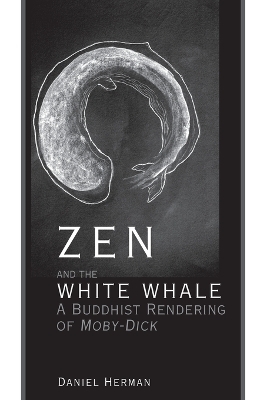
Zen and the White Whale
Lehigh University Press (Verlag)
978-1-61146-166-4 (ISBN)
In this book, Herman argues that Herman Melville may have been aware of Buddhist thought far earlier than previously considered. Scholars have long known of Melville’s interest in Buddhism in the final decades of his life (seen in the short poem “Buddha,” and perhaps even the surname of his final protagonist, Billy “Budd”). But as early as 1847, Melville had knowledge of “the grand lama of Thibet,” mentioning him in that year’s Omoo. And the five years directly preceding the composition and publication of Moby-Dick (1844–1849) coincided with the period during which interest in Buddhism turned from an obscure curiosity among American intellectuals to formal research among religious scholars in the United States.
In Moby-Dick’s wide philosophical musings and central narrative arch, Herman finds a philosophy very closely aligned specifically with the original teachings of Zen Buddhism. In exploring the likelihood of this hitherto undiscovered influence, Herman looks at works Melville is either known to have read or that there is a strong likelihood of his having come across, as well as offering a more expansive consideration of Moby-Dick from a Zen Buddhist perspective, as it is expressed in both ancient and modern teachings. But not only does the book delve deeply into one of the few aspects of Moby-Dick’s construction left unexplored by scholars, it also conceives of an entirely new way of reading the greatest of American books—offering critical re-considerations of many of its most crucial and contentious issues, while focusing on what Melville has to teach us about coping with adversity, respecting ideological diversity, and living skillfully in a fickle, slippery world.
Daniel Herman is adjunct professor of English at the University of San Francisco.
Acknowledgments
Introduction
Part 1: Melville’s Encounters with Buddhism
1. The Prologue to Buddhist Studies
2. A Universal Absorber
3. Bayle’s Dictionary
4. Possibilities and Probabilities
5. Mardi and Other Mysteries
Part 2: Ishmael’s Way-Seeking Mind
1. Groundlessness
2. Narcissus and Dongshan
3. Searching for Ishmael
4. Whaling Life, Monastic Life
5. Ishmael’s Meditation
6. Impermanence and Interdependence
7. Philosophy, Koans, and Silence
Part 3: Moby Dick’s Inscrutable Selflessness
1. Sarcastic Science
2. The First Principle of All Things
3. Whiteness
4. The Measurements of the Whale Skeleton
5. Ox-Herding
Part 4: Captain Ahab’s Universe
1. A Factionalized Consciousness
2. Savagery Beyond Savagery
3. Faith and the Three Mates
4. The Doubloon
5. Pip, Who Jumped from a Whale-Boat
6. Ahab’s Awakening
7. Pacific
Conclusion
Bibliography
| Verlagsort | Cranbury |
|---|---|
| Sprache | englisch |
| Maße | 151 x 230 mm |
| Gewicht | 354 g |
| Themenwelt | Geisteswissenschaften ► Religion / Theologie ► Buddhismus |
| Geisteswissenschaften ► Sprach- / Literaturwissenschaft ► Anglistik / Amerikanistik | |
| Geisteswissenschaften ► Sprach- / Literaturwissenschaft ► Literaturgeschichte | |
| Geisteswissenschaften ► Sprach- / Literaturwissenschaft ► Literaturwissenschaft | |
| ISBN-10 | 1-61146-166-9 / 1611461669 |
| ISBN-13 | 978-1-61146-166-4 / 9781611461664 |
| Zustand | Neuware |
| Haben Sie eine Frage zum Produkt? |
aus dem Bereich


